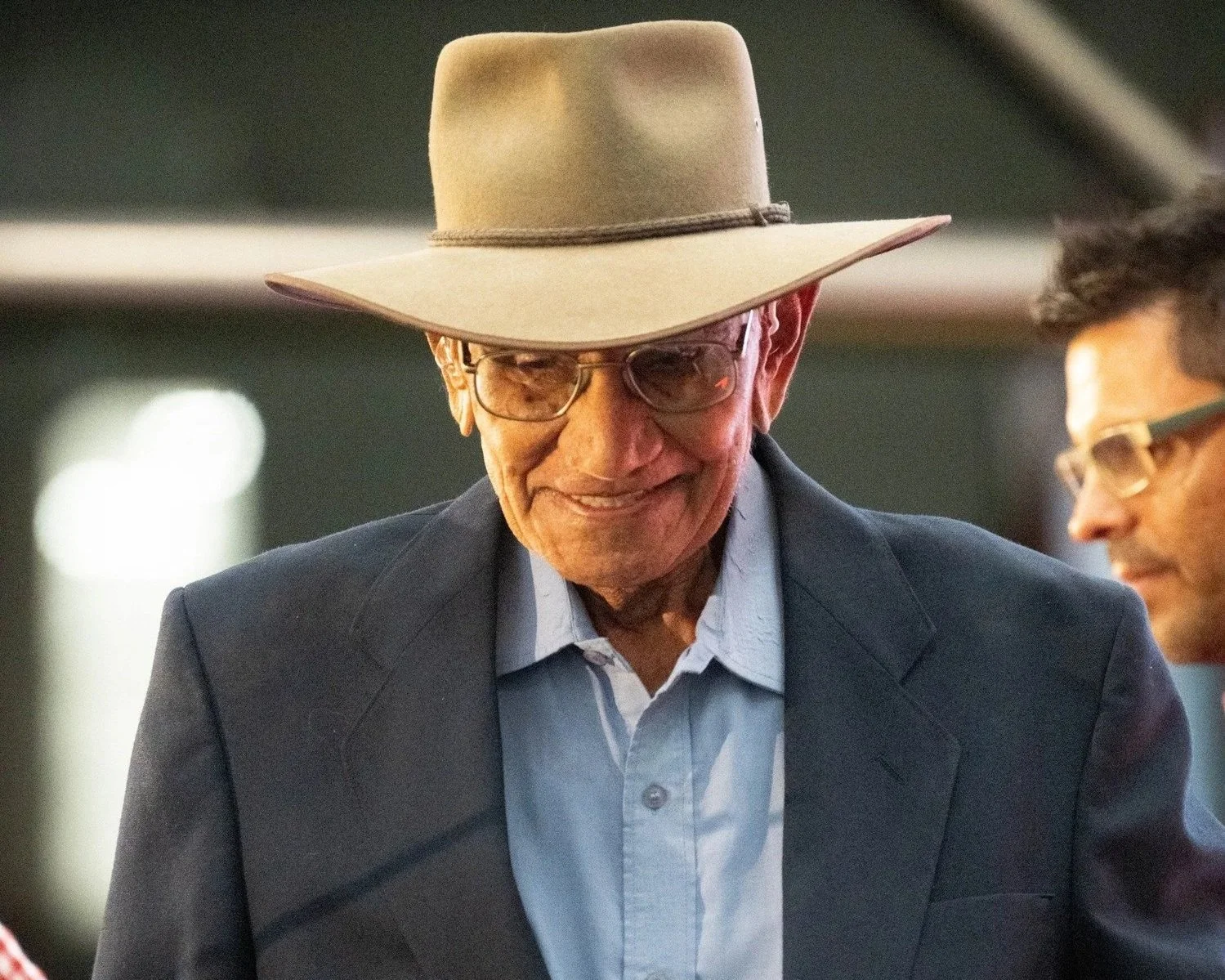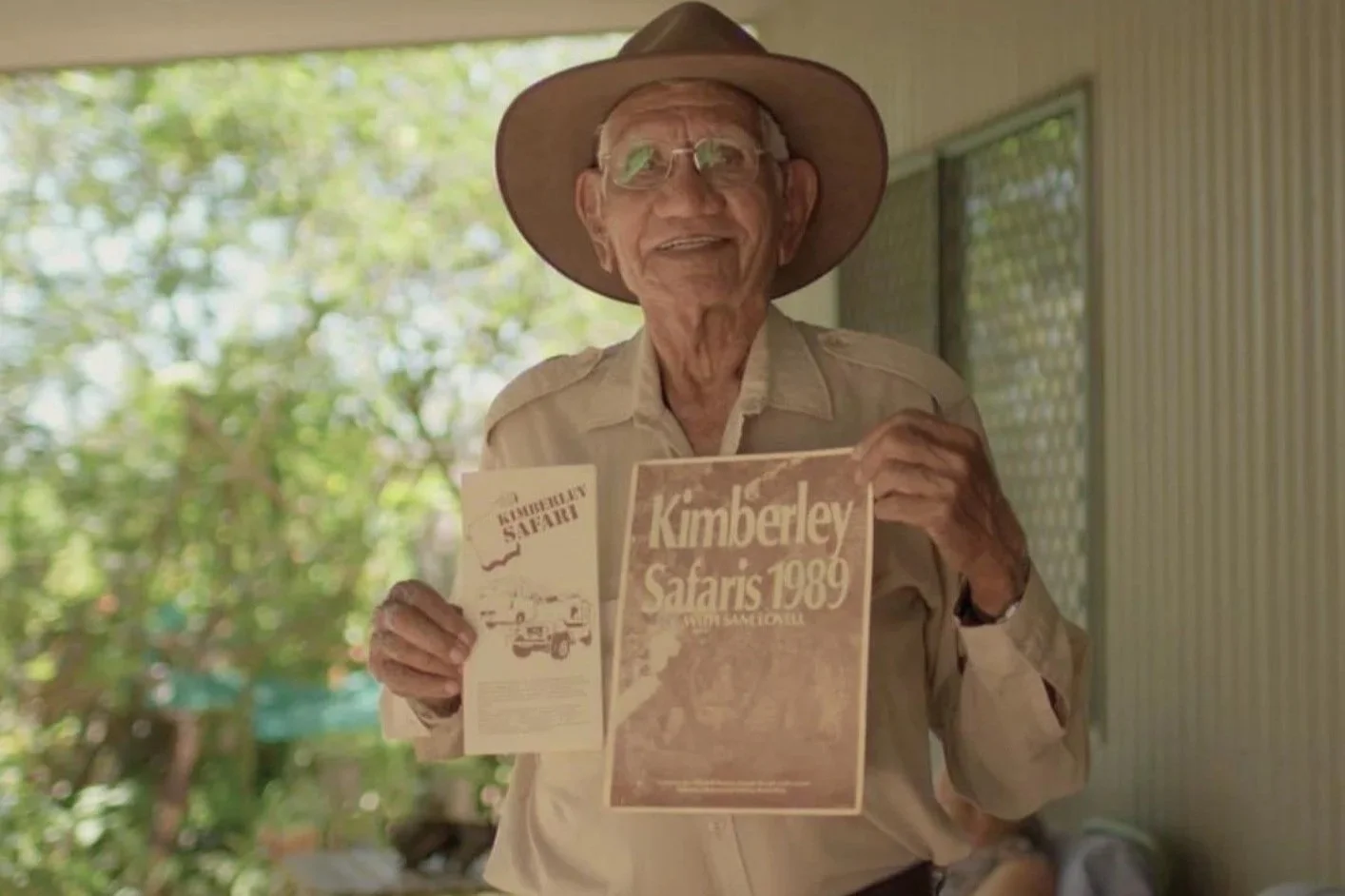KIMBERLEY MOURNS PIONEER OF ABORIGINAL TOURISM
Sam Lovell at the launch of the Hello, This is Sam Lovell exhibition at the State Library of Western Australia. Image: State Library of Western Australia
BY ASAD KHAN
A Life That Touched the Tracks and the Rivers
When Bardi Jawi tourism operator Rosanna Angus first met Sam Lovell on country, she remembers watching him step out of his old troop carrier with the quiet confidence of a man who knew every bend, creek and red-dirt track across the Kimberley.
“He opened the door for all of us,” she said.
“He showed what Aboriginal tourism could look like.”
Across the Kimberley, people are mourning the death of respected Nyikina elder Sam Lovell — widely regarded as the father of Aboriginal tourism in Western Australia.
One of the state’s earliest Aboriginal tourism operators, Mr Lovell helped shape an industry that now stretches across the country.
His work laid the foundation for a sector that now employs hundreds of Aboriginal people and brings thousands of visitors onto country each year.
‘Mr Kimberley’: Memories of a Trailblazer
Nyikina cultural leader Victor Hunter said his memories of Mr Lovell stretch back more than 70 years. His earliest image is of Sam and his wife Rosita living under a tree near the Fitzroy River as they worked contract fencing on Yeeda Station.
From those humble beginnings, Mr Hunter said, Mr Lovell built a life of extraordinary contribution.
Sam Lovell at one of many exhibitions he visited. Image: State Library of Western Australia.
“Sam was the first person — white or Black — who started tourism in the Kimberley,” he said.
“He modified his troop carrier to carry about 14 people. My brother Eric and Rosita would go ahead and cook in camp ovens while Sam brought the tourists. Everything was done on country.”
Mr Hunter recalled the joy Mr Lovell brought to others through music, driving from Derby to Tamworth for the Country Festival, and the respect he carried within the stockman community.
One memory stands out strongly.
“When stockman David Fairfield passed away, Sam organised all the horses for the funeral and bought brand new Akubra hats for everyone,” he said.
“Everyone kept their hat. That was Sam, generous, respectful, always thinking of others.”
He said Mr Lovell’s passing is “a really sad loss for everyone — not only Aboriginal people, but all who knew him.”
A Keeper of Knowledge and History
Musician and Kimberley Stolen Generation leader Mark Bin Bakar told Ngaarda Media he was one of the last people to see Mr Lovell alive.
He described him as a walking encyclopaedia of Kimberley history, a man known affectionately as “The Map.”
“He was a senior Stolen Generation man and an encyclopedia of who’s who in the Kimberley,” he said.
“When you’re with him on country, there’s no mucking around. He speaks straight. He was committed to retaining information.”
Sam Lovell on the set of The Tale of Mr Kimberley. Image: State Library of Western Australia.
He said Mr Lovell knew he was nearing death and had begun “planning his own departure,” including what he wanted on his headstone.
“He told me he has a photo of himself on a horse and he wanted that on his headstone,” he said.
“As chairman of the Kimberley Stolen Generation, I told him not to worry, we’d take care of it. He was content with that.”
A Legacy That Will Live On
Across the Kimberley, communities are sharing stories of Mr Lovell’s generosity, humour and leadership.
His vision helped establish Aboriginal tourism as a powerful cultural and economic force — one built on country, storytelling and the strength of First Nations knowledge.
In the words of those who knew him best, Mr Lovell was not just an operator, or a guide, or even a pioneer.
He was Mr Kimberley.
LISTEN TO THE YARN:




